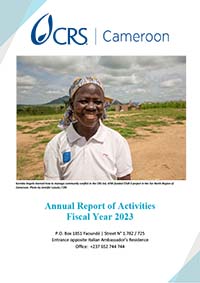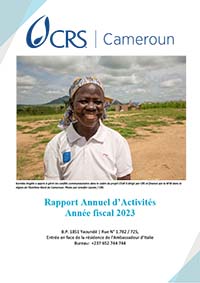CRS in Cameroon
Cameroon, an oil-rich central African country located in the Gulf of Guinea, is often described as “Africa in microcosm.” The country is rich in natural resources and has enormous potential in agriculture, manufacturing and extractive industries. However, rampant corruption and a challenging political system have kept Cameroonians in poverty. The systems and social structures promoting inequality have thwarted citizens' access to the country's riches. About half of Cameroon’s population lives on less than $2 per day. With a national prevalence rate of 4.27%, the HIV and AIDS pandemic still complicates many health problems.
Cameroon is one of Africa’s most ethnically diverse countries with more than 250 groups present, each with its own customs and social structures. Politicians frequently exploit those diversities, leading to sporadic conflicts and latent distrust among groups. Cameroon is also host to over 300,000 refugees mainly from Central Africa Republic, Chad and Nigeria. As of 2016, there are also over 80,000 internally displaced people (IDPS) due to Boko Haram activity in the Far North of Cameroon.
Stats
People served: 2,834,625
Population: 25,640,965
Size: 183,568 sq mi; slightly larger than California
Our Partners
Become a Partner ›CRS' History in Cameroon
Catholic Relief Services adapts its programming to the changing circumstances of the country and to the needs of the Cameroonian people. Our first programs here began in 1961.
CRS started working in Cameroon primarily to reduce the death rate of children under five. Our work later shifted to improving food supply in the northern regions of the country where there was drought-related hunger. Later, CRS moved to governance, health and HIV programming. Our current focus is on supporting refugees, orphans and vulnerable children and community health, including water and sanitation.





